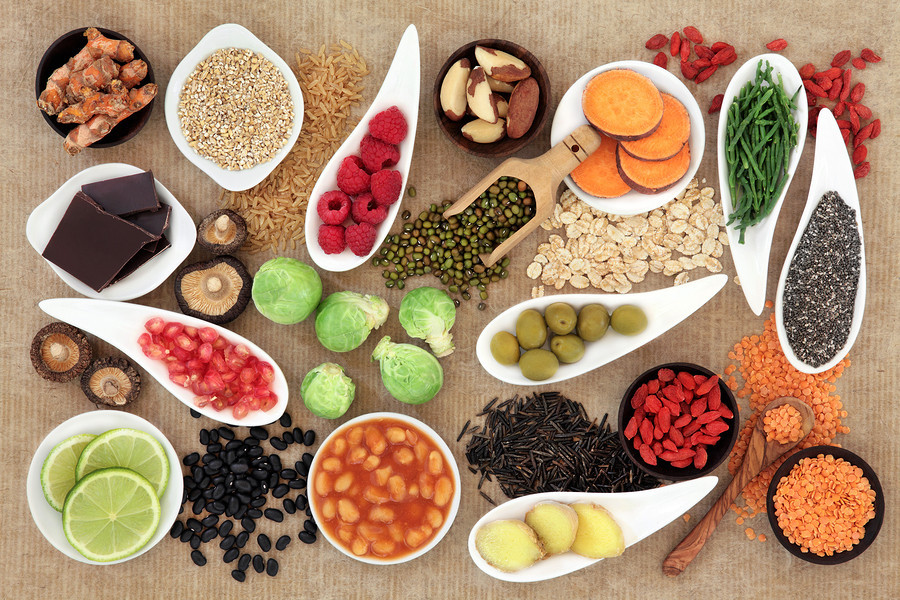What is nutrition and why is nutrition important?

At the most basic level, nutrition is about eating a regular, balanced diet. Good nutrition helps fuel your body. The foods you eat supply the nutrients your body needs to maintain your brain, muscle, bone, nerves, skin, blood circulation, and immune system. Proper nutrition also helps protect you from illness and disease such as heart disease, diabetes, cancer, and osteoporosis.
There are two major classes of nutrients in food: macronutrients and micronutrients. Macronutrients are carbohydrates, protein, and fat. They supply energy (in the form of calories) and serve as the building blocks for muscles and tissues.
In comparison, micronutrients are individual vitamins and minerals. They are divided into four categories: water-soluble vitamins, fat-soluble vitamins, microminerals, and trace minerals.
What foods are healthy?
For optimal health, science supports following a plant-based diet like the Mediterranean-DASH (Dietary Approaches to Stop Hypertension) diet, and MIND (Mediterranean-DASH Diet Intervention for Neurodegenerative Delay) diet. Plant-based diets have been shown to have various health benefits and are linked with a lower risk of heart disease, cancer, and other chronic illnesses.
With so many food options available with plant-based diets, there are many healthy recipes you can make.
While most foods in plant-based diets offer important health benefits, certain ones stand out.
These “superfoods” pack the biggest nutritional punch. People should try to eat some หรือถ้าคุณสนใจแทงบอลออนไลน์ UFABET คือเว็บที่มีอัตราต่อรองดีที่สุดในประเทศไทย สมัครเลยตอนนี้ที่ UFABET แทงบอล of these healthy foods every day or as often as possible. They include the following:
- Berries. High in fiber, berries are naturally sweet, and their rich colors mean they are high in antioxidants and disease-fighting nutrients.
- Fatty fish. Fatty fish can be a good source of protein and omega-3 fatty acids, which help prevent heart disease. Those with the highest omega-3 content are salmon, mackerel, trout, anchovies, and sardines.
- Leafy greens. Dark, leafy greens are a good source of vitamin A, vitamin C, and calcium, as well as several phytochemicals (chemicals made by plants) that fight inflammation and protect cells from damage.
- Nuts. Hazelnuts, walnuts, almonds, and pecans are good plant protein sources. They also contain monounsaturated fats, which may be a factor in reducing the risk of heart disease.
- Olive oil. Olive oil is a good source of vitamin E, polyphenols, and monounsaturated fatty acids, all of which help reduce the risk of heart disease.